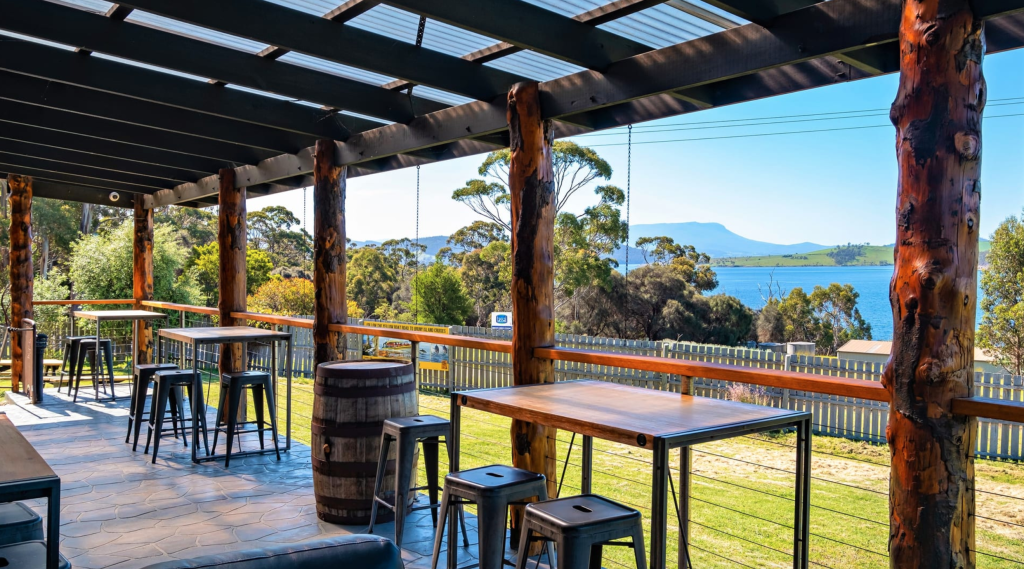They might be 17,400 kilometres apart, but Tasmania has fondly become known as the “sister island” to Scotland, thanks to its thriving whisky industry.
Our most southern state has built a top-shelf reputation as the epicentre of whisky in Australia and a highly acclaimed producer of single-malt whisky across the world, winning top gongs and the praise of aficionados here and abroad. So it’s little surprise a successful cellar door in picturesque Bruny Island has mainlanders barrelling across the Bass Strait.
Raven Vass and Lee Herron can attest first-hand to the success of Tasmanian whisky. What started as a restaurant nine years ago evolved into the Bruny Island House of Whisky, which now holds the largest known collection of Tasmanian single-malt whiskies on tasting in the world.
“The evolvement happened very quickly and was highly successful, filling a place in a very niche market,” Ms Vass said.
Taking in extraordinary views, visitors to the House of Whisky are welcomed into a quaint stone-and-timber cottage with a tasting bar, retail shop, restaurant area, commercial kitchen and generous front verandah. Upstairs, there’s a main residence with three bedrooms and behind the main building is an amenities block and parking space for 35 cars.
Since the couple listed the property for sale, there have been more than 70 enquiries – predominantly from mainlanders of all ages seeking a sea-change after the pandemic.
But Ms Vass said no prior experience in distilleries or bottling was necessary to take over the business.
“Neither of us had previous experience in the Tasmanian single-malt whisky industry, however, each of us has our passion – one of us single-malt whisky [and] one of us gin,” Ms Vass said, adding the couple would happily pass on their knowledge in the business hand-over.
The business’s qualified staff are also brimming with a wealth of knowledge and enthusiasm.
There are more than 85 distilleries across Tasmania and 12 independent bottlers, including the House of Whisky. That the business thrived through a world pandemic can be largely attributed to the bottling of Seclusion limited-release gins and Trappers Hut single malt, which retails for between $250 and $500 a bottle, with collector’s releases fetching about $2000 a bottle.
“The business is thriving; some months the turnover is higher than pre-COVID,” Ms Vass said.
While interstate tourists have flocked to Bruny Island since state borders reopened, listing agent Laureen Wood from First National Kingswood said many visitors to the island were local Tasmanians enjoying a holiday in their own backyard.
She said some holiday accommodation on the island that was averaging 60 per cent occupancy before the pandemic was now operating at 70 or 80 per cent.
“And this is without international clientele,” she added. “We’ve fared really well through the whole COVID period.”
The House of Whisky is conveniently located on the main road to and from the island’s ferry port. “The House of Whisky is the first stop and the last stop,” Ms Wood said.
The island has between 600 and 700 permanent residents but at any one time, there are thousands of extra people on the island.
Ms Wood said the local property market was booming, and she was regularly fielding calls from mainlanders looking to relocate to Bruny Island: “I’m selling all of my properties in multiple offer situations well above market price.”
The Bruny Island House of Whisky, including the business, stock and residence, is expected to fetch above $1.7 million.
